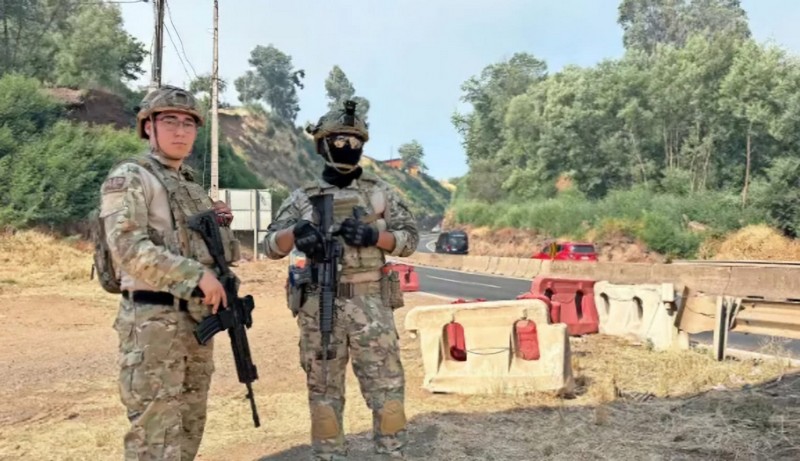Three weeks before the constitutional state of emergency marks three years of uninterrupted enforcement in the southern macrozone, unions and lawmakers acknowledge the measure's value but agree it needs improvement to prevent attacks like the one recorded last week in Biobío, which left 51 trucks and machinery destroyed.
Among their proposals, they call for evacuating lands occupied by radicalized groups, advancing the Intelligence and Rules on the Use of Force laws, and granting greater autonomy and support to the actions of police and the Armed Forces.
The Multigremial of La Araucanía acknowledges the measure's continuation but points out that "it’s time to refine it." They propose a national counterterrorism plan "that includes prosecutors, judges, and greater political will," says Claudia Lillo, the organization's executive director. She adds that the state must regain control of occupied lands and stresses the need for "swift approval of the Rules on the Use of Force (RUF) legislation to protect those who protect us."
From the United Farmers Association, its president, Camilo Guzmán, warns that it is crucial to "provide clear legal guarantees and strong institutional backing to deployed forces," emphasizing "the universal principles of justice, dignity, and proportionality."
They stress that the measure must pave the way to solving "the crisis caused by agroindustry’s economic abuse and the lack of real opportunities in rural areas, which must be resolved for a permanent solution."
For the president of the Association of Rural Violence Victims (AVVRU), Alejo Apraiz, while the government has been "efficient in implementing the state of emergency," there is still "a lack of political will to grant autonomy in decision-making..."
"We know, every time we approve a state of emergency, that it ultimately proves insufficient," says DC deputy for Biobío Karen Medina, who praises the arrest of Federico Astete, accused of being one of the leaders of the radical group Resistencia Mapuche Lafkenche. However, Senator Carmen Gloria Aravena, co-author of the Anti-Terrorism Law, warns that Astete is "just one leader of this group, which originated in the former Lafkenche Strip and consists of multiple cells still operating." Thus, she adds, "the state of emergency needs better regulations. We’ve already done so with the new Land Seizure Law and the Anti-Terrorism Law. Now the government must act by evacuating territories occupied by terrorist groups and speeding up the Intelligence Law, as attacks are not being anticipated."
RN deputy Miguel Becker argues that "today our military has its hands tied," agreeing that "the Intelligence Law, which we hope will soon be enacted, will give the Armed Forces more tools to dismantle and intercept potential attacks."
Meanwhile, Amarillos deputy Andrés Jouannet emphasized that "political will is needed. Police and military personnel must be shielded from judicial repercussions." On this, he detailed that "under a state of emergency, military personnel should be tried by military courts—otherwise, they won’t act."
Last week, both chambers of Congress voted in favor of extending the state of emergency in the south. With this renewal, the measure will complete three uninterrupted years since its enactment on May 16, 2022, when it was established to protect routes in La Araucanía and the provinces of Arauco and Biobío.
Despite this, high-profile violent incidents have occurred during this period, such as the attack on the Grollmus Mill, the burning of 31 cabins in the Lanalhue Lake area, or the destruction of over fifty machines last week in Santa Bárbara.
Source:El Mercurio







Comentarios (0)
No hay comentarios aún. ¡Sé el primero en comentar!
Deja un comentario